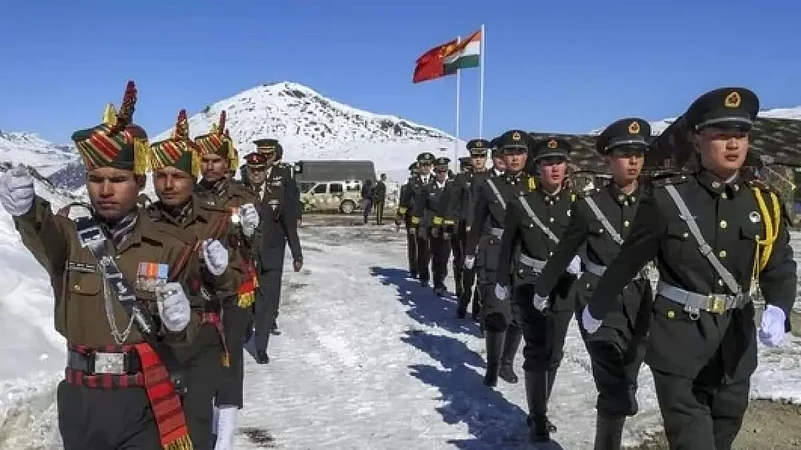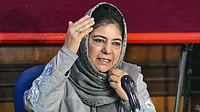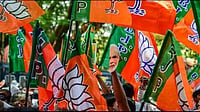India and China have agreed to hold the next round of military-level talks at an early date to resolve the remaining issues in eastern Ladakh and create conditions for the restoration of normalcy in bilateral ties. However, in the strategically important region politics of agitation is shaping up. After brief celebrations in Leh over the region being separated from erstwhile Jammu and Kashmir state and granted a separate Union Territory status on August 5, 2019, political parties are seeking statehood for the region.
As the region this year hosted the Tibetan spiritual leader Dalai Lama, political parties of Ladakh kept a low profile. However, they have now reiterated their four demands, which include a full-fledged statehood for Ladakh, constitutional guarantees like the inclusion of Ladakh in the Sixth Schedule, separate seats for Leh and Kargil in Lok Sabha and Rajya Sabha and jobs reserved for Ladakh. “The government of India might have thought that the Kargil Democratic Front and Apex Body of Leh have forgotten their four-point agenda. We have not. We want to convey to the government of India that we will not compromise on our agenda,” Thupstan Chhewang, president of the Apex Body of Leh, and Asgar Ali Karbalai, co-chairman of the Kargil Democratic Alliance (KDA), told reporters in Leh after a meeting of both groups early this week.
The Chhewang and Karbalai said that they have decided to stage a sustained movement for the four-point agenda for Ladakh. “We will go for mass mobilization and agitation to press for our demands,” they said.
For the past two years, the Leh Apex Body and KDA, an amalgam of different political groupings of the region, are seeking statehood for Ladakh, with constitutional safeguards on the lines of the Sixth Schedule to safeguard the demography, environment and unique culture of the region. They also seek two Lok Sabha seats for the region, a Rajya Sabha seat and a filling up of 10,000–12,000 vacancies to overcome unemployment in the region.
After the abrogation of Article 370 and Ladakh becoming a separate Union Territory, it was assumed that Ladakh’s political problems would end. But the political parties say that they have been shown only dreams and they will continue their struggle for the implementation of the four-point agenda.
After the abrogation of Article 370 on August 5, 2019, the Central government extended 890 laws to Jammu and Kashmir and 130 state laws of the erstwhile state to J&K after modifications. However, at the same time, the BJP government in the Centre has not extended any Central law to Ladakh or adapted any law from the erstwhile J&K state to Ladakh.
In September 2021, the government of the Union Territory of Ladakh issued an order defining a “resident of the UT of Ladakh”. According to the Ladakh Resident Certificate Order 2021, any person who possesses a Permanent Resident Certificate issued by the competent authority in the districts of Leh and Kargil or belongs to a category of persons who would have been eligible to be issued a Permanent Resident Certificate by the competent authority in the districts of Leh and Kargil will be eligible to receive the Resident Certificate. In contrast to Jammu and Kashmir where the government has come up with a domicile law making it easy to acquire a domicile certificate of J&K for outsiders, in Ladakh the government has stuck to the old rules.
Meanwhile, on October 31, the government of Ladakh did not give permission to former chief minister of Jammu and Kashmir Omar Abdullah to use a mike at his workers function in Drass area of Kargil. Ladakh administration celebrates the Union Territory’s foundation day on October 31. Omar was also denied access to Dak Bungalow.
Later addressing a function without a mike, Omar said, “It shows how shaky and frightened this administration is about its decision to bifurcate Jammu and Kashmir into two Union territories.” Omar said that the strong relations between Ladakh and Jammu and Kashmir regions will not be weakened by any cartographical line. “We know what you (people of Ladakh) are going through. We know how your demands are being ignored. We know how your sentiments are not being honored. That is why I wanted to meet you. We were not here to occupy the city. If decisions of August 5, 2019 were taken after popular demand of people of Ladakh, then using mike wouldn’t have made any difference,” he added. Ridiculing the government for not allowing him to use mike, he said, “It is October 31 today and one cannot use a mike. If I use mike tomorrow, how does it make any difference.”
Lambasting the government again, Omar said, “We had already informed Ladakh administration about our visit. Otherwise they had asked not to come. Why this fear about our visit. China has intruded in our territory. You couldn’t stop China. You couldn’t push back China. We had to visit Kargil through Drass and you are asking us not to visit.”
This year also Ladakh witnessed huge gatherings during over a month-long stay of the Tibetan spiritual leader Dalai Lama in July and August. Since 2019, after the abrogation of Article 370, this year’s was the first visit of the spiritual leader to the region. While the strategic community was waiting for the Dalai Lama to utter the word China, His Holiness delivered several sermons to his followers and visited a monastery at Padum in the Zanskar region. He also talked at length about his exodus from Tibet.
The visit by the Tibetan Buddhist monk was his first one to Leh since the military stand-off between India and China started along the Line of Actual Control (LAC) in eastern Ladakh in April–May 2020.
As Kargil and Leh political parties seek their rights, it will be seen how the government handles the issue.


























